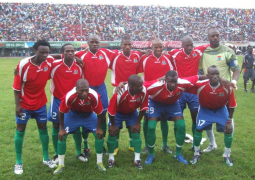
Bookshelves
in the United States and Europe are starting to sag under the weight of new
volumes analysing democracy’s troubled state. Their foreboding titles sound a
clear alarm, from “How Democracies Die” and “The Road to Unfreedom” to “The
Retreat of Western Liberalism” and “The Fate of the West.” Yascha Mounk’s, “The
People vs. Democracy,” is an engaging, accessible addition to this stream. For
Mounk, a lecturer at Harvard University and a frequent commentator on
contemporary politics, the most pressing challenge comes from “the far-right
populists who have been gaining strength in every major democracy,” with
President Trump “the most striking manifestation of democracy’s crisis.”
Mounk warns that two foundational assumptions of post-World War II global politics are now in question. It no longer appears certain that the established democracies of North America and Europe will always stay democratic. Additionally, rather than forming a seamless whole, liberalism and democracy - the essences of which in Mounk’s account are, respectively, the rule of law and the popular will — are starting to clash seriously with each other.
Concerned
as he is about populism, which he characterizes as “democracy without rights,”
Mounk stresses that the problem is also “rights without democracy” - the
undemocratic liberalism produced by the overreach of unelected institutions
such as independent agencies, courts and state bureaucracies, and the
increasing isolation of legislators from their constituents.
In
Mounk’s account, three big developments are driving the contemporary
instability of democracy. First and foremost, slow economic growth and rising
inequality have replaced the sustained high growth and moderate inequality that
helped root Western democracy in the second half of the 20th century. Second,
the recent wave of immigration in most major democracies is prompting a “vast
rebellion” against ethnic and cultural pluralism. Third, new communications
technologies have removed traditional media filters, empowering previously
marginalized illiberal voices and making citizens more aware of the
unrepresentative features of their democratic institutions.
The
comprehensiveness of Mounk’s analysis of populism’s advance is valuable,
helping get beyond narratives that focus on a few especially colourful or nasty
political figures or movements. Yet in painting analytically with such broad
strokes and bold colors, Mounk sometimes sacrifices nuance. The vision he sets
out of populism as a global epidemic overstates the case, for example. Populism
is not on the rise in many regions, including sub-Saharan Africa, the Middle
East and East Asia, and has recently been on the decline in Latin America.
Additionally, the virus of populism in Europe does not appear to be spreading
as quickly or dangerously he implies.
Mounk
highlights the crumbling of what he calls “democracy’s founding myth”: liberal
democracy’s claim to be democratic despite relying heavily on representative
institutions that he says were founded in self-conscious opposition to the
ideal of democracy. Here too, however, the rapid sweep of his account produces
some analytic queasiness. His claims about the growing power of unelected
institutions are telling with regard to Europe, especially given the sometimes
overweening role of the European Union. But they are a bit strained vis-a-vis
the United States. Have U.S. independent agencies, such as the Environmental
Protection Agency and the Federal Communications Commission, really been
putting important policy issues beyond the reach of voters, as he says? What’s
most striking about these and other U.S. independent agencies is how closely
they hew to the line of whichever president voters put into power.
Similarly,
his argument that fewer and fewer national legislators have strong ties to
local communities is certainly true for the United States but less so in at
least some parts of Europe. Many members of the British Parliament, for
example, do maintain such ties.
The
relentless focus of “The People vs. Democracy” on populism as the central
threat to U.S. democracy leaves out the intense left-right polarization that
afflicts our political life and produces problems like gerrymandering,
legislative gridlock, fights over electoral integrity vs. electoral access, and
the collapse of traditional norms of comity and restraint among politicians.
The populism that Trump embodies indeed poses many dangers, but it comes on top
of a different, much longer-term pattern of democratic paralysis. Even if the
fires of populism cool, the United States will face an ongoing crisis of
democratic effectiveness and faith rooted in the country’s crippling and
still-growing polarization.
Mounk
moves forthrightly from diagnosis to extensive prescription, with a three-part
call to action. Economic policy must be reformed to increase living standards
and reduce inequality. Democracies need to replace exclusionary nationalism
with “inclusive patriotism” that facilitates a greater sense of community among
citizens while easing fears about migration. And democracies must renew the
faith of their citizens in their own democratic systems.
His
specific recommendations for achieving these goals span many crucial issues,
from taxation and productivity to housing and social benefits. But they run
squarely into obvious political obstacles, as is clear in his admonition that
the United States should raise tax rates on high earners and corporations;
bolster core elements of the welfare state; and invest more in infrastructure,
education and research. More than a few recommendations will make the reader
mumble “no doubt” but wonder how exactly they might come about, such as his
insistence that U.S. legislators should “desist from blatantly anti-democratic
practices like gerrymandering and voter suppression” and, while they’re at it,
reduce the role of money in politics and restore truthfulness to political
life.
The
fact that politically likely solutions to the powerful drivers of democratic
discontent are so elusive is less a shortcoming of the book than a reflection
of the depth of the troubles at hand. There is room for debate over many parts
of the alarming picture that Mounk and other worried political experts are
presenting, yet no room for debate that Western democracy is showing greater
strain and facing greater threats than at any time in decades.
Available
at Timbooktoo Tel:4494345


